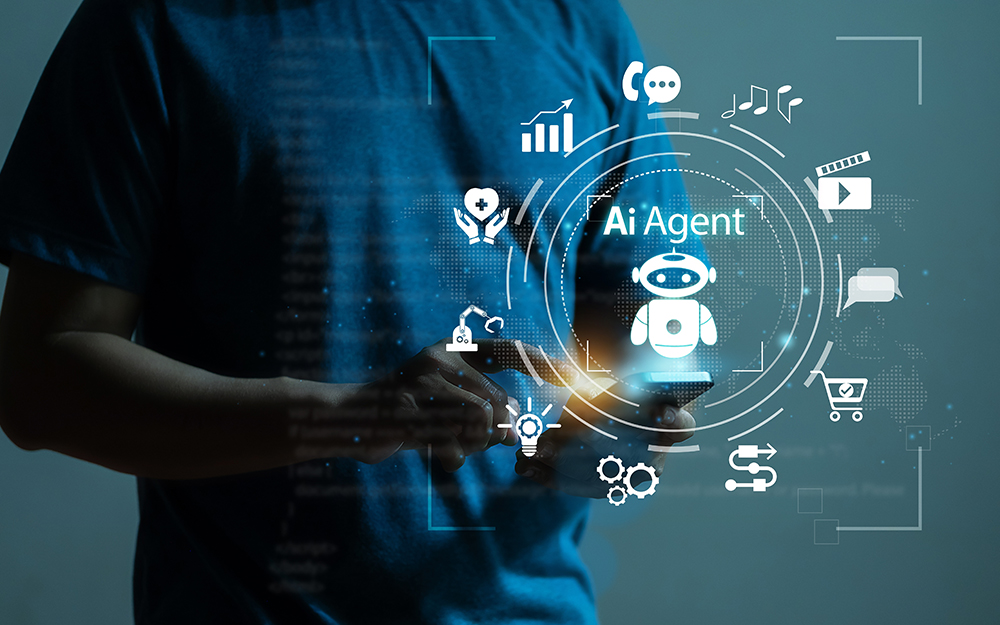The world of software development is in the midst of a profound transformation, driven by the emergence of Agentic AI. No longer confined to mere automation of repetitive tasks, these autonomous AI agents are stepping into the spotlight, demonstrating an unprecedented ability to engage in iterative problem-solving and execute complex tasks with minimal human intervention. This heralds a new era for custom software development, promising unparalleled efficiency, innovation, and a fundamental shift in how we build and deploy applications.
What is Agentic AI?
At its core, Agentic AI refers to intelligent systems capable of perceiving their environment, reasoning about their observations, formulating plans, acting on those plans, and continuously learning and adapting from the outcomes. Unlike traditional AI tools that require explicit instructions for every step, agentic AI operates with a higher degree of autonomy, breaking down complex, multi-step problems into manageable sub-tasks and iterating towards a solution.
Think of it as a highly skilled digital co-worker or even a team of co-workers. These agents can:
- Perceive and Analyze: Gather information from various sources, including codebases, documentation, user feedback, and external APIs.
- Reason and Plan: Utilize sophisticated reasoning capabilities, often powered by large language models (LLMs), to understand goals, devise strategies, and break down complex problems into actionable steps.
- Act and Execute: Interact with their environment, whether it’s writing code, configuring systems, running tests, or communicating with other agents or humans.
- Learn and Adapt: Continuously improve their performance by analyzing the results of their actions, identifying errors, and refining their strategies over time through feedback loops.
The Impact on Custom Software Development
The implications of Agentic AI for custom software development are nothing short of revolutionary, influencing every stage of the Software Development Lifecycle (SDLC):
- Requirements Gathering & Analysis: Agentic AI can analyze vast amounts of unstructured data, such as user stories, forum discussions, and market trends, to identify requirements, pinpoint ambiguities, and even suggest optimal features for a custom solution. They can bridge the gap between natural language requirements and structured design schemas.
- Design and Architecture: AI agents can propose system architectures, recommend design patterns, and even generate preliminary design diagrams based on defined requirements. They can analyze architectural trade-offs, ensuring scalability, performance, and security from the outset.
- Coding and Development: This is where agentic AI truly shines. From generating boilerplate code and specific functions to refactoring existing code for efficiency and adhering to coding standards, autonomous agents significantly accelerate the coding process. They can even translate high-level design into functional code, reducing manual effort and human error.
- Testing and Quality Assurance: Agentic AI can autonomously generate comprehensive test cases (unit, integration, system), execute tests, identify edge cases, and even pinpoint security vulnerabilities. They learn from past test failures to improve future testing strategies, leading to higher code quality and fewer bugs.
- Deployment and Maintenance: These agents can automate deployment configurations, optimize deployment strategies (e.g., blue-green deployments), predict potential risks, and even implement rollbacks if issues arise. In maintenance, they can continuously monitor applications, detect anomalies, diagnose root causes, and even propose or implement fixes proactively, ensuring continuous uptime and performance.
- Iterative Problem-Solving: A key differentiator is the agent’s ability to iteratively solve problems. If an initial attempt fails or encounters an unforeseen issue, the agent doesn’t give up. Instead, it analyzes the failure, reflects on its reasoning, adjusts its approach, and tries again, much like a human developer debugging a complex problem. This “think-act-observe” loop dramatically reduces the need for constant human oversight.
- Complex Task Execution: Agentic AI is moving beyond simple, rule-based automation. They can orchestrate intricate workflows involving multiple steps, dependencies, and external tools. Imagine an agent that can receive a high-level request like “build a new microservice for user authentication,” and then autonomously handle everything from database schema design to API endpoint creation, testing, and even deployment, interacting with various development tools along the way.
Challenges and the Human in the Loop
While the promise of Agentic AI is immense, it’s crucial to acknowledge the challenges and the ongoing need for human oversight:
- Trust and Control: Ensuring that AI agents’ decisions are fair, responsible, and align with human intent is paramount. Mechanisms for human review, approval, and intervention will remain vital, especially for critical systems.
- Complexity of Implementation: Integrating and managing sophisticated AI agents within existing development workflows requires careful planning and expertise.
- Data Privacy and Security: The reliance on vast amounts of data for learning and decision-making raises concerns about data privacy and security, demanding robust safeguards.
- “Automation Blindness”: Over-reliance on AI-generated code without proper review can lead to subtle errors or security vulnerabilities that are difficult to detect. Developers will evolve into reviewers, architects, and strategic thinkers, guiding the AI’s efforts.
The Future is Agentic
The rise of Agentic AI is not about replacing human developers, but rather augmenting their capabilities and freeing them from tedious, repetitive tasks. It promises to transform software development from a largely manual, error-prone process into a highly efficient, adaptive, and innovative endeavor.
As these autonomous AI agents become more sophisticated, they will empower organizations to build custom software faster, with higher quality, and at scale previously unimaginable. The future of software development is truly agentic, where human creativity and strategic thinking are amplified by the autonomous problem-solving power of AI. It’s an exciting time to be in the world of custom software, and those who embrace this revolution will undoubtedly lead the way.


